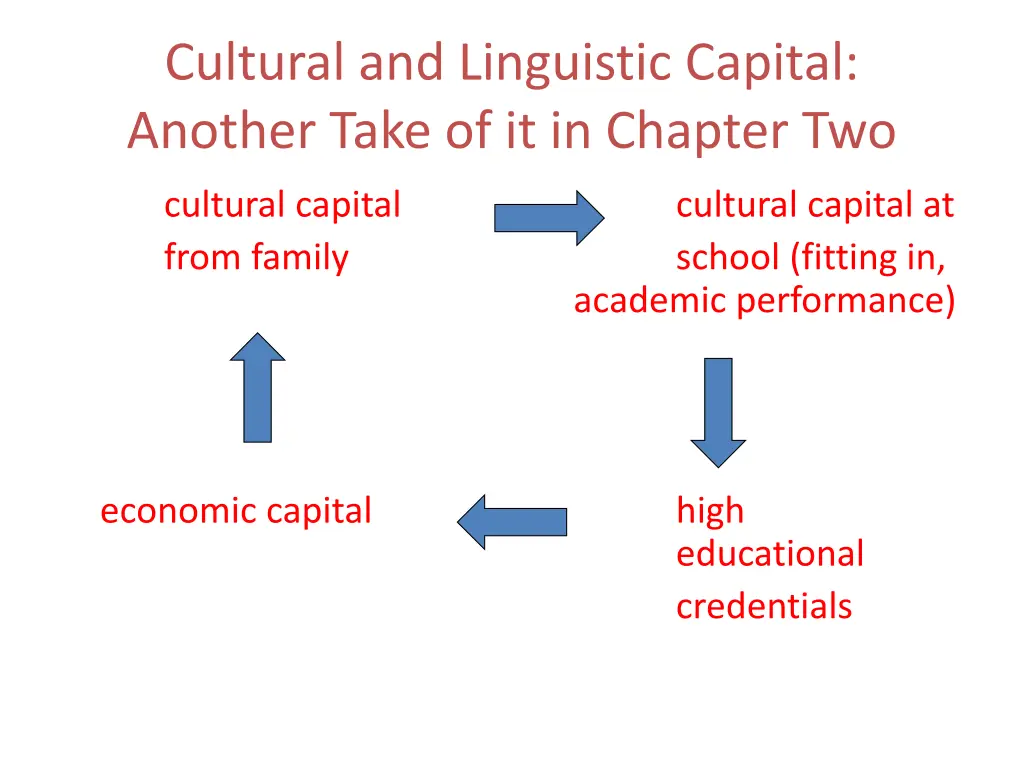
Unveiling Cultural & Linguistic Capital in Education
Explore the influence of cultural and linguistic capital on academic performance, social hierarchies, and hidden curriculums in educational settings. Delve into how different groups of students navigate and benefit from their family's cultural capital, economic status, and educational credentials.
Download Presentation

Please find below an Image/Link to download the presentation.
The content on the website is provided AS IS for your information and personal use only. It may not be sold, licensed, or shared on other websites without obtaining consent from the author. If you encounter any issues during the download, it is possible that the publisher has removed the file from their server.
You are allowed to download the files provided on this website for personal or commercial use, subject to the condition that they are used lawfully. All files are the property of their respective owners.
The content on the website is provided AS IS for your information and personal use only. It may not be sold, licensed, or shared on other websites without obtaining consent from the author.
E N D
Presentation Transcript
Cultural and Linguistic Capital: Another Take of it in Chapter Two cultural capital from family cultural capital at school (fitting in, academic performance) economic capital high educational credentials
The cultural capital at St. Pauls Hierarchies are natural: preserve them but make them invisible Experiences (not heritage) matter Ease This is the hidden curriculum at St. Paul s: students are learning a particular view of the world that justifies and legitimates their elite position
Two groups of students do not make the hierarchy natural and comfortable: their cultural capital from their families does not pay off in the school 1) Those who rely on their inheritance and connection to their school and make much of their privilege (e.g., Chase Abbott, Evan William) 2) Those who are more middle class and/or working class Ignore the janitorial staff rather than relating to them Too grateful to be here (lower academic performance) Jenna s question about working-class students
The Re-Emergence of a Service Class No butlers or valets, but personal assistants No chauffeurs; private jets and car service; example from Liquidated by Karen Ho Example from In Search of Respect by Philippe Bourgois What do you think of Khan s analysis of Milk Gnome and Big Guy (pp. 60-61)?
